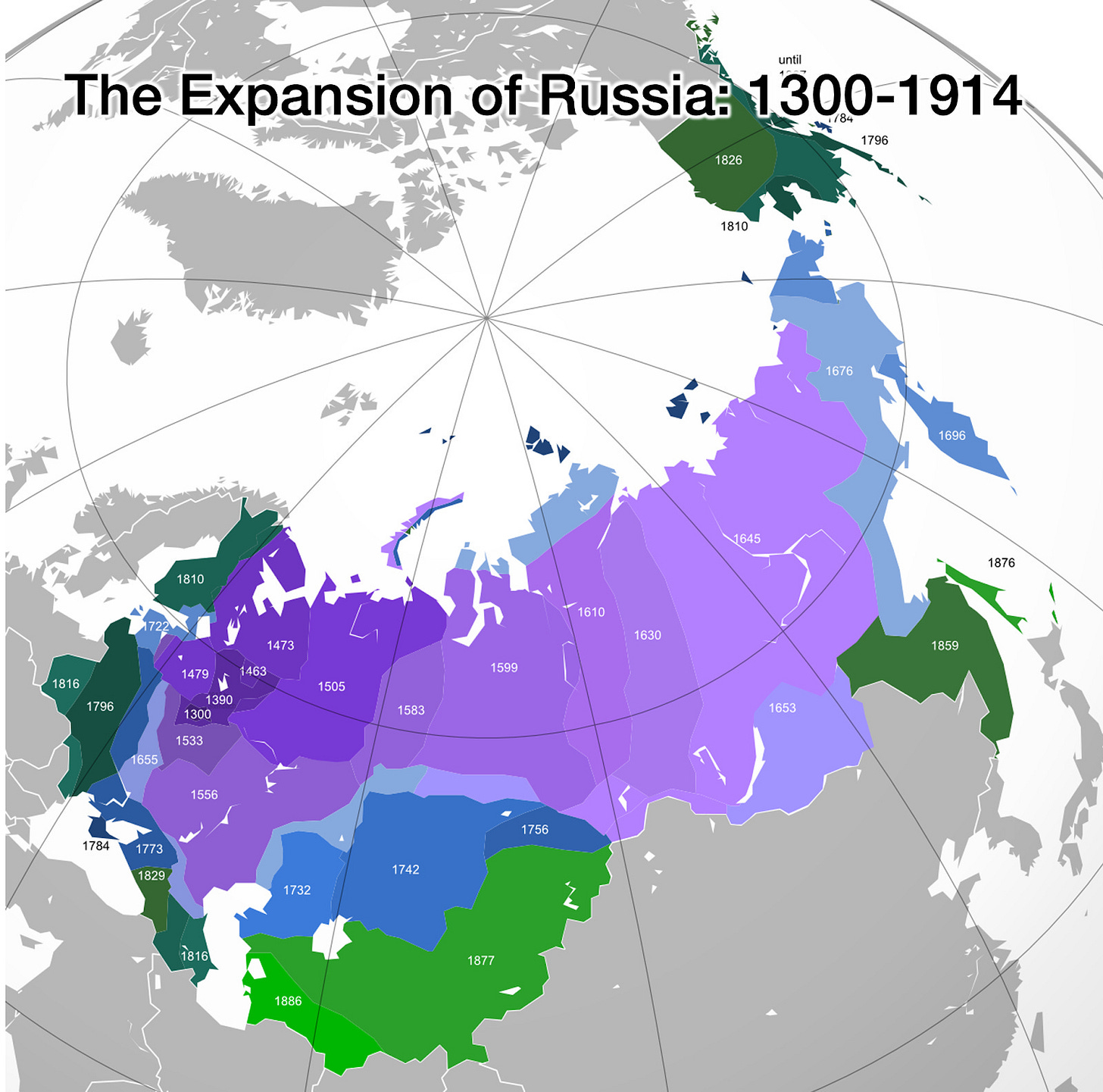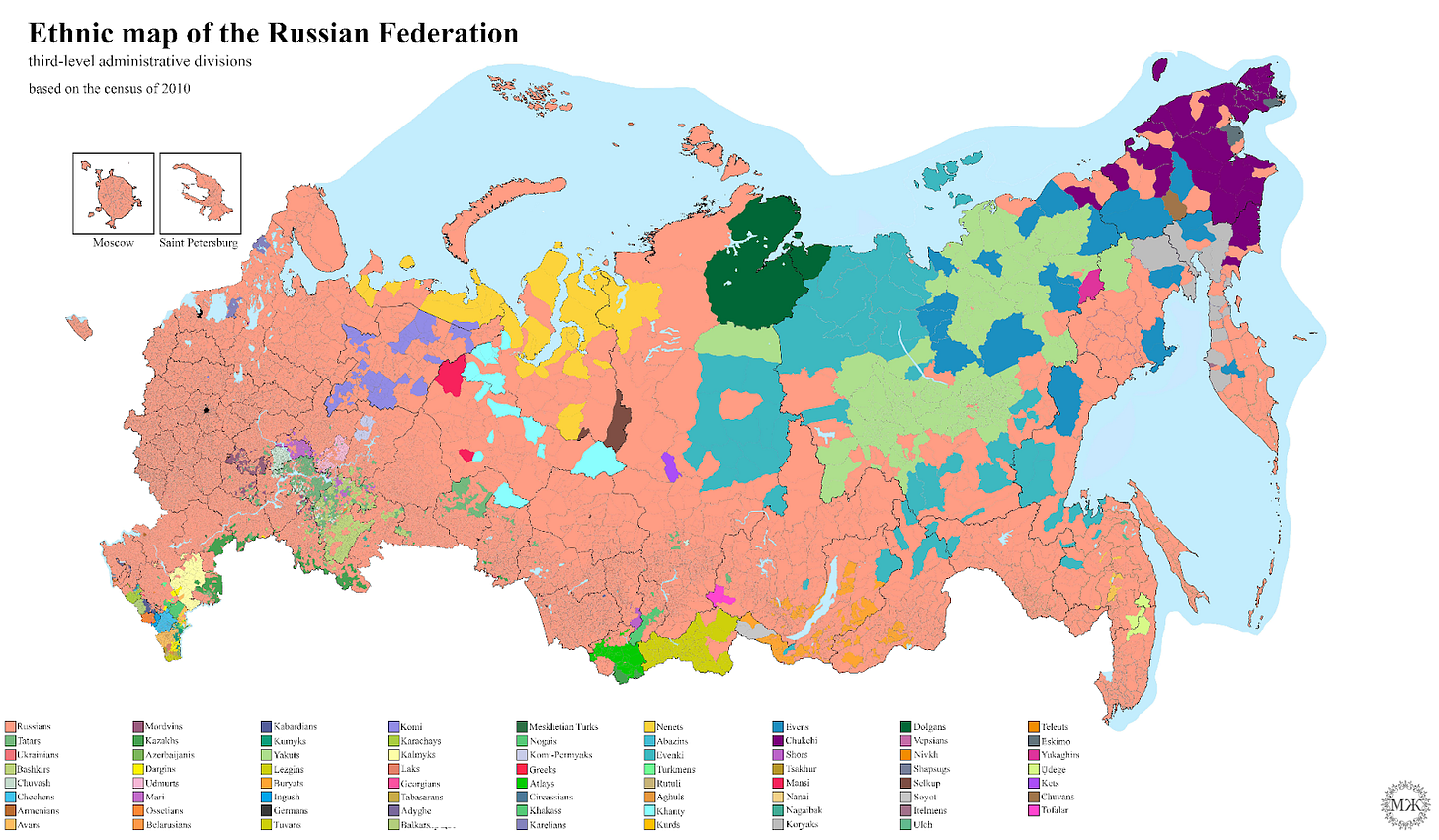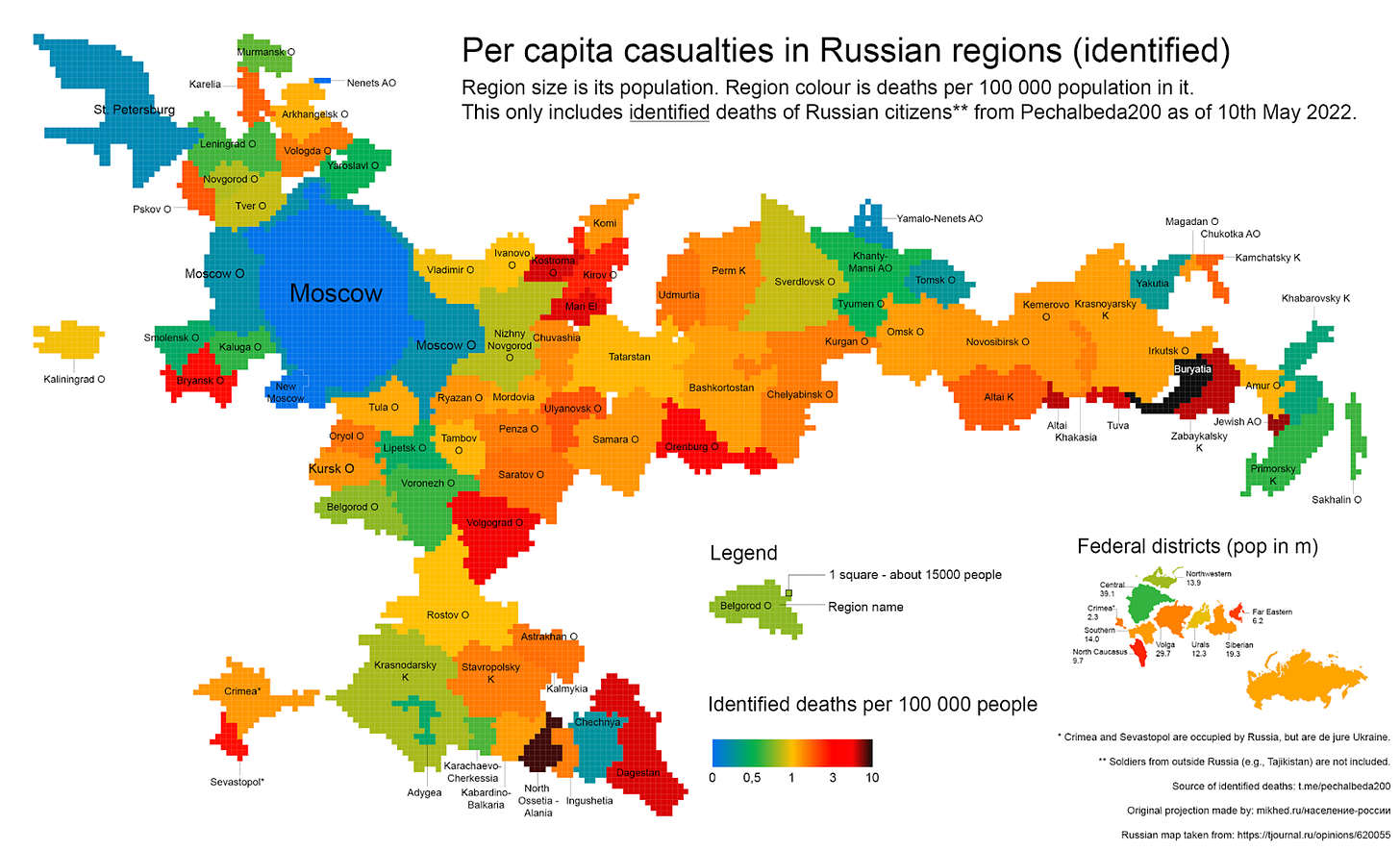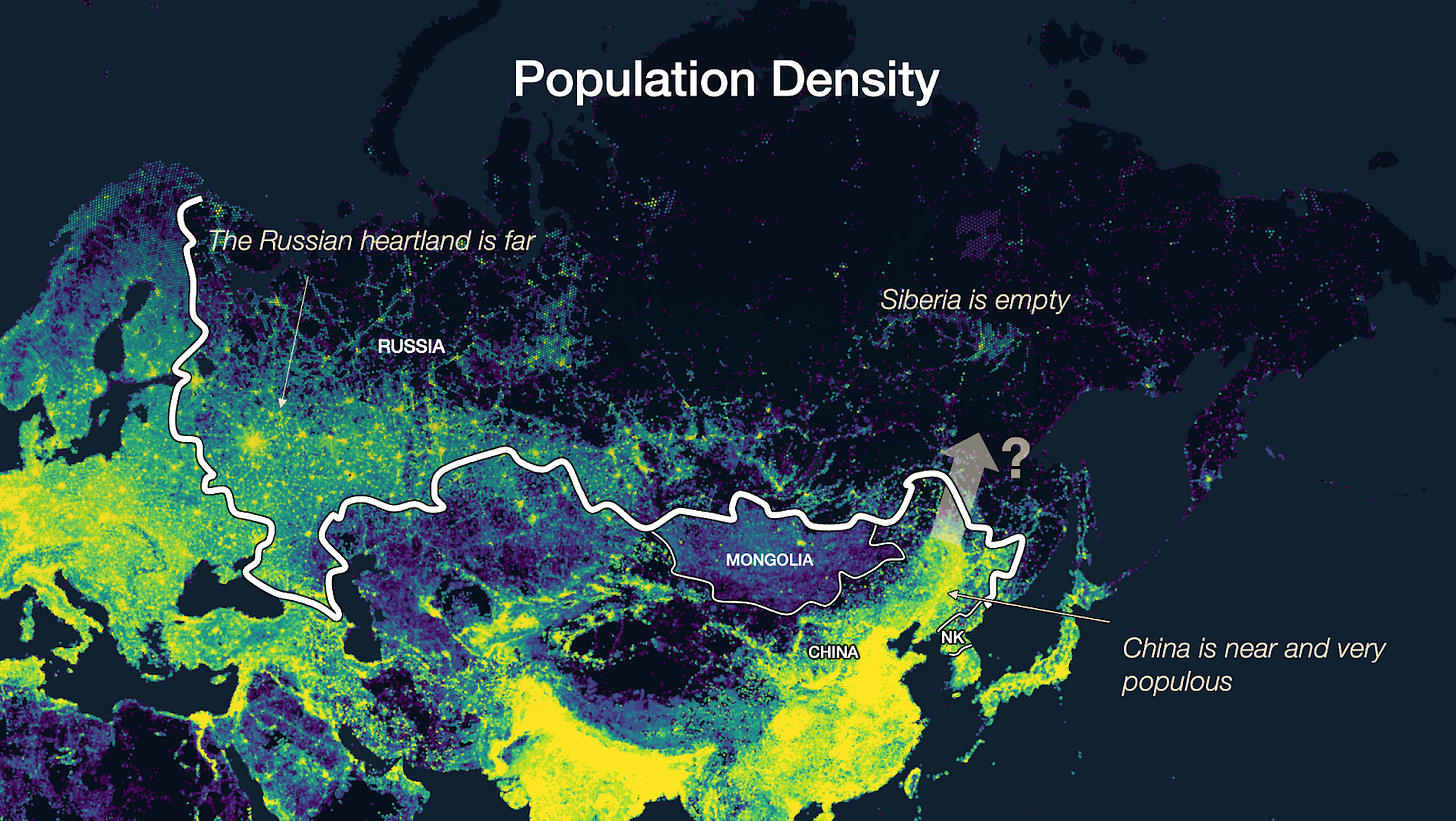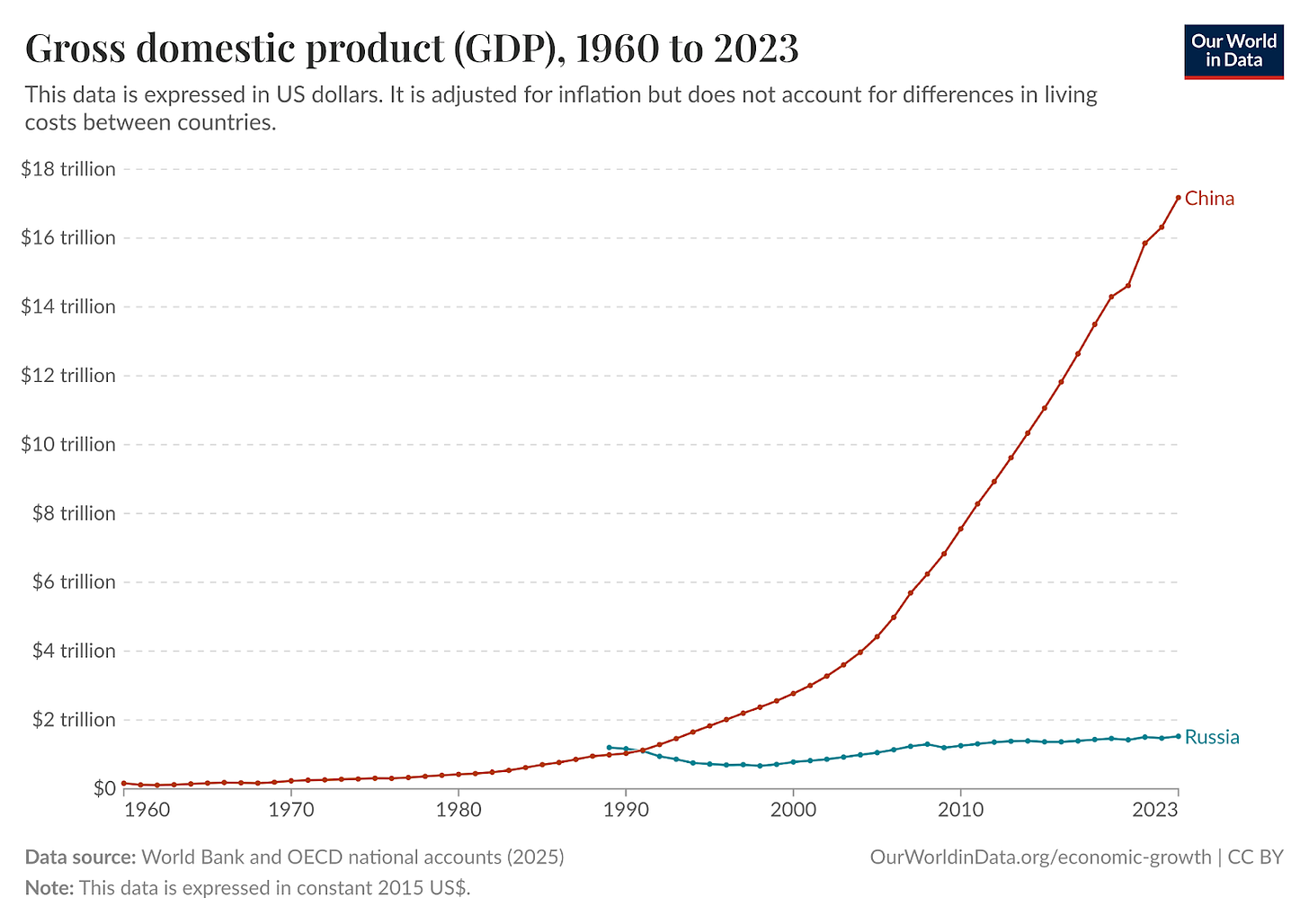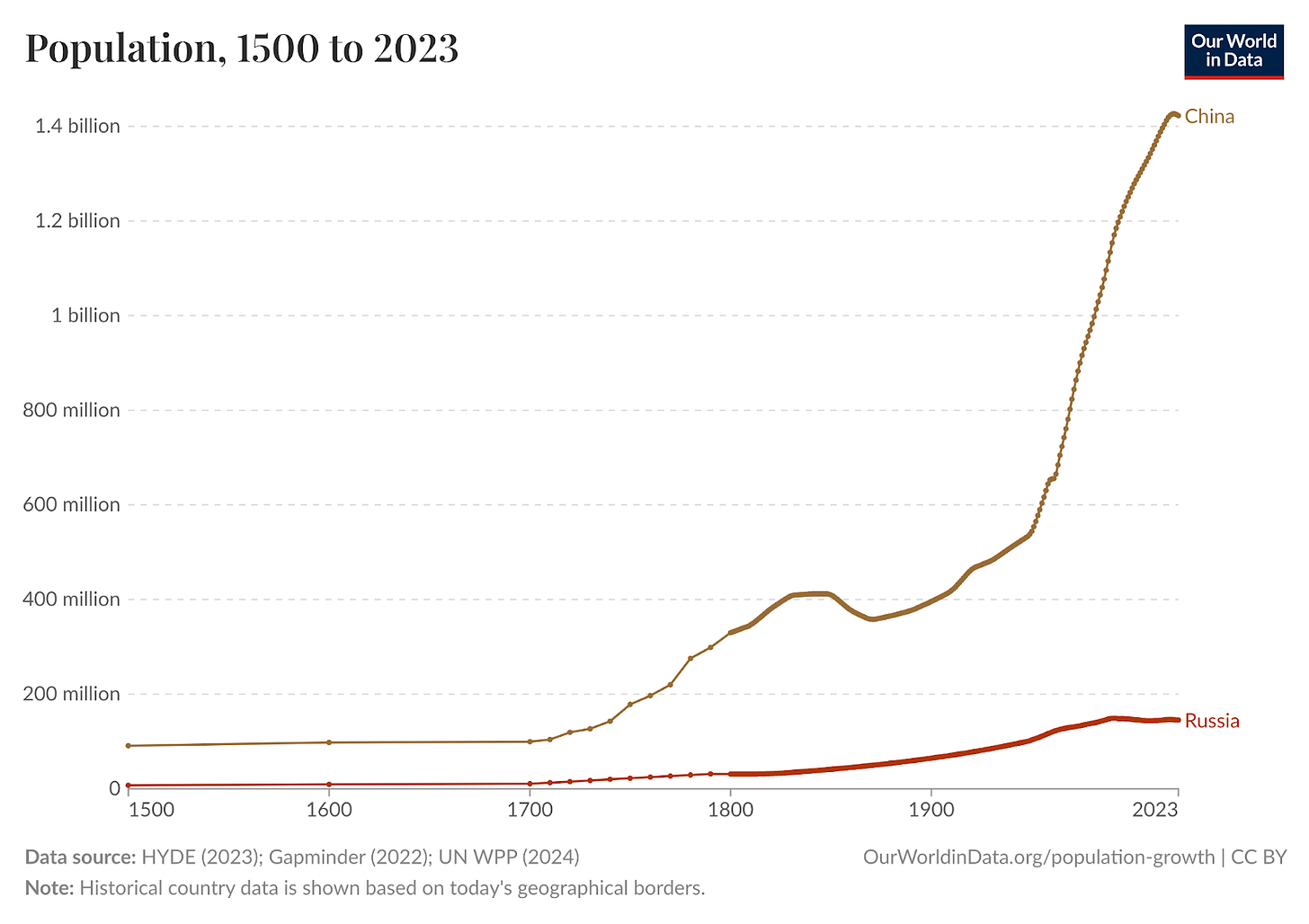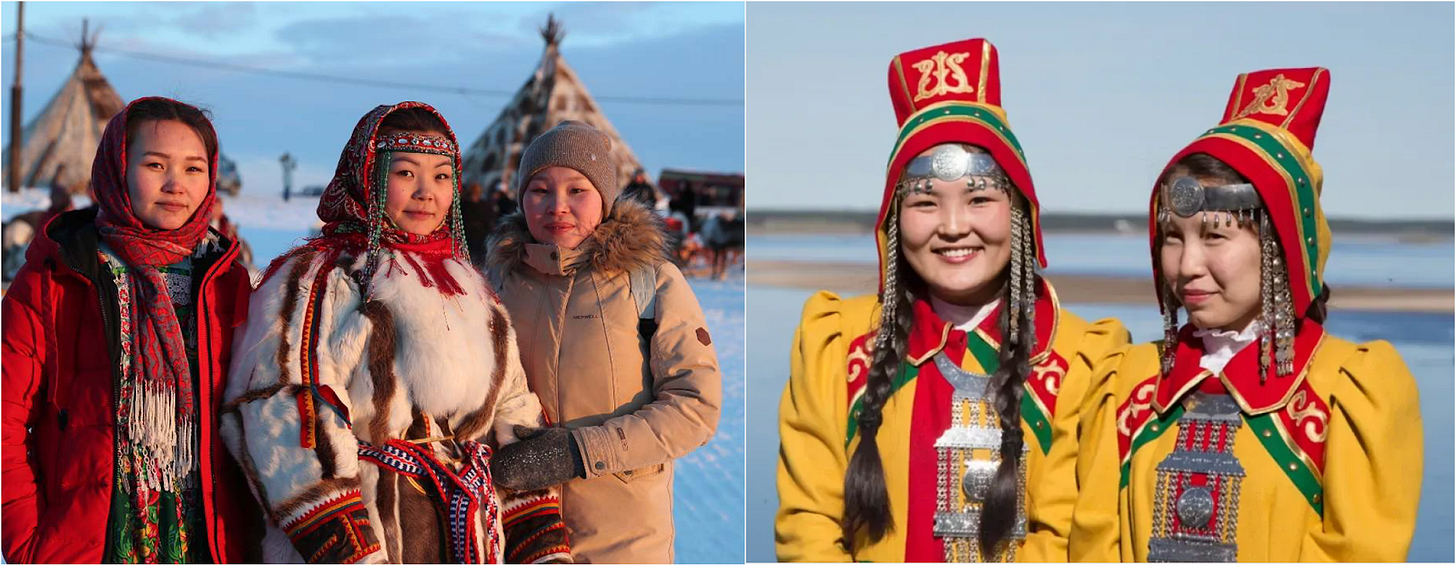Putin’s Mindset on Russia
Between my articles on Russia (1, 2) and those on Moscow (3, 4), a picture emerged on how Putin thinks about Ukraine and Russia. I shared many of the relevant facts in articles 3 and 4. Now, I’m adding the final ones, along with the consequences I take of all these facts on Putin’s mindset:
Russia is a colonial empire
Will China take over Siberia?
Why Russia, and not China, took over Siberia
Why Mongolia exists
Why the capital moved from Moscow to St Petersburg and back again
Why Russia believes it’s the heir of the Roman Empire
Why Putin’s vision of Russia is distorted
Russia Is a Colonial Empire
This stood out as I was researching this article: Russia is the last remaining colonial empire!
Russia expanded east just as Western European countries were expanding globally, in the 1500s and 1600s!
Like Spain, Portugal, the Netherlands, France, and Britain, Russia had its homeland in Europe (Moscow) and expanded into other continents (Asia in this case).
The superior agriculture in Europe allowed for much bigger populations, which translated into the manpower needed to conquer other lands. This was true for Russia, too.
All these powers used modern military technology to conquer other lands, especially gunpowder.
Like in America after Spanish conquest, many natives died from disease after Russia’s invasion. It looks like a majority of Siberian populations died this way!
Like for France in New France—what’s now Canada—the primary impetus for Russian colonization was the fur trade!
Like with Spain and Portugal, religion was a strong colonizing force. Orthodox missions built churches, baptized locals, and tied them to the Russian legal order. Catholic missions did the same for Spain and Portugal, often in parallel with military conquest.
Expansion fueled more expansion: The more land was conquered, the more wealth it produced, financing even more conquest. This was true of Siberia and its furs, as well as Caribbean islands and their tobacco or sugar productions.
First contact usually involved trade alliances, and later military subjugation.
Military outposts doubled as trade hubs. In Russia, small forts on rivers served as both military garrisons and fur-collection points. Presidios in New Spain, or forts in New France, guarded trade posts and enforced tax/tribute. Portugal’s trading posts were coastal forts.
Like in Spanish or Portuguese colonies, there was no attempt in Russia to industrialize native economies; the focus was fur, later some minerals.
Cossacks built reputations and wealth through raids, tribute collection, and exploration. They were often pardoned for past crimes if they served on the frontier. Conquistadors could earn titles, land, and wealth. Famously, Hernán Cortés, conqueror of Mexico, was a fugitive.
The question becomes: Why didn’t Russia decolonize?
No sea. When there’s a sea, other powers can intervene, blockade you, destroy your ships… It’s much harder to do that with a massive landmass like Siberia. Nobody has the logistics to feed an army marching in Siberia.
Siberia was sparsely populated, and became more so after the conquest. There was little native population to rise up and demand independence.
European Russians spread across Asia, replacing local ethnicities in many areas. This is more reminiscent of the UK’s Canadian and Australian colonies rather than those in the US or India. It’s not a coincidence that Canada and Australia stayed much closer to the motherland for longer.
With poor soil and worse transportation, trade was not viable, so wealth accumulation was difficult, too.
Today, you can see some aspects of colonial rule by Moscow over the rest of Russia:
Moscow underfunds regional authorities and vets who can participate in their regional elections
All subsoil resources are federal, so Moscow controls the oil, gas, and mining revenue
Most of the investment is linked to resource extraction rather than local industry development
Moscow is cracking down on minority languages
Moscow grinds “the others” in its war against Ukraine
In essence, the only moment of decolonization was the fall of the Soviet Union. Which brings the question: Will there ever be a second decolonization in Russia? Will Russia lose Siberia?
Will Russia Lose Siberia?
This is the most surprising map:
The Russian heartland is very far away from Siberia.
China’s is much closer.
The Russian side of the Siberian border is empty.
The Chinese side is packed.
China is also quite angry because Russia took its access to the Sea of Japan at the end of WW2.
China now calls itself a near-Arctic state. What do you think is their intent?
Also, this:
And this:
And this:
Here’s my take on this: China is biding its time.
It has nearly 4000 years of history. It was first united over 2000 years ago. It knows things come and go. Meanwhile, Russia is a young state. It’s just a few centuries old, and the Siberian colonies are an overstretch.
China is interested in this region, but it won’t take it over immediately. It will wait for the right moment, when Russia is weak and China is strong and there’s a very good reason for China to move on that landmass.
All of this makes me wonder: Why didn’t China conquer Siberia to begin with?


